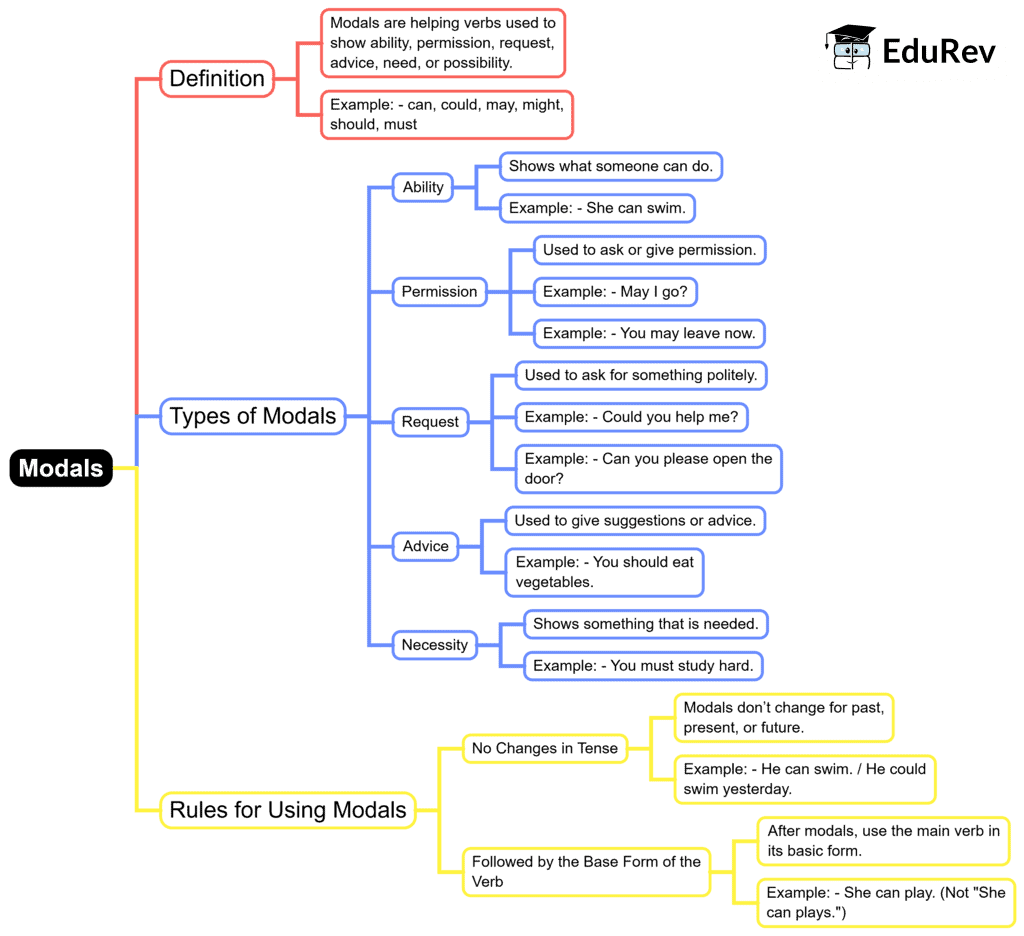Class 10 Exam > Class 10 Notes > English Grammar Advanced > Mind Map: Modals
Mind Map: Modals | English Grammar Advanced - Class 10 PDF Download

The document Mind Map: Modals | English Grammar Advanced - Class 10 is a part of the Class 10 Course English Grammar Advanced.
All you need of Class 10 at this link: Class 10
|
53 videos|210 docs|40 tests
|
FAQs on Mind Map: Modals - English Grammar Advanced - Class 10
| 1. What are modals and how are they used in English? |  |
Ans. Modals, or modal verbs, are auxiliary verbs that express necessity, possibility, permission, or ability. Common modals include "can," "could," "may," "might," "must," "shall," "should," and "will." They are used to modify the meaning of the main verb in a sentence, indicating the speaker's attitude towards the action.
| 2. Can you provide examples of modal verbs in sentences? |  |
Ans. Certainly! Here are a few examples:
- "She can swim very well." (ability)
- "You must finish your homework." (necessity)
- "May I borrow your pen?" (permission)
- "He might come to the party." (possibility)
| 3. What is the difference between "must" and "have to"? |  |
Ans. "Must" indicates an obligation or necessity imposed by the speaker, while "have to" suggests an obligation imposed by external circumstances. For example, "You must wear a seatbelt" implies a strong personal recommendation, whereas "You have to wear a seatbelt" indicates a legal requirement.
| 4. How do modals change in negative form? |  |
Ans. To form the negative of modals, you generally add "not" after the modal verb. For example:
- "can" becomes "cannot" or "can’t"
- "will" becomes "will not" or "won't"
- "must" becomes "must not" or "mustn't"
This changes the meaning to indicate the opposite of the modal's original function.
| 5. Are there any rules for using modals in questions? |  |
Ans. Yes, when forming questions with modals, the modal verb typically comes before the subject. For example, "Can you help me?" or "Should we leave now?" This structure helps to indicate that a question is being asked.
Related Searches





















